What Happened to the Firehouse Community Farm in North Long Beach?
22 minute readThe honeybees had to be moved by night—when they’d returned to their hives after a day of foraging for nectar. The four colonies were secured and loaded into the back of a truck headed 60 miles southeast to a farm in Temecula.
Ofelia Rivera, the hobbyist beekeeper who rescued the bees, was forced to relocate the hives from the North Long Beach community farm where they were kept after it suddenly shut down earlier this year. Not only is the absence of the bees a loss to the local ecosystem, she says, but they also provided honey and served an educational purpose: Rivera taught beekeeping to students from Cal State Dominguez Hills.
Started in 2014, the Firehouse Community Farm—also known to some as the North Long Beach Victory Garden—had been run by a group of dedicated volunteers and stewarded by the Neyham Neighborhood Association with the help of partner organizations like the Surfrider Foundation and the University of California’s Master Gardener program. Over the years, the farm has grown peaches, radishes, greens, beans, tomatoes, you name it. But more than simply agriculture production, the space was used as a teaching farm, where participants could learn how to become green thumbs and cultivate their own backyard gardens.
The farm operated on the premises of the former Fire Station 12 property at Gundry Avenue and East 65th Street, which is owned by the city. In 2016, a Ninth District City Council field office was opened in the firehouse building, back when Mayor Rex Richardson was the district’s councilmember. The office was assumed by Dr. Joni Ricks-Oddie last year.
But today, the once bustling Firehouse Community Farm is overgrown by weeds. The crops are unsalvageable. Several tropical trees planted for shade have dried up. The grape and berry vines that create a “living fence” show signs of neglect against the summer sun. And there are no bees. A few stragglers left behind when the hives were moved were later exterminated, Rivera said.
She’s overcome by emotion when talking about how she feels seeing the farm invaded by a tangle of four-foot weeds.
“We spent so much time there and now we can’t even get in,” she said. “I loved to plant those trees and grow vegetables and now that we can’t access the place it’s sad.”
But who is to blame?
The president of the Neyham Neighborhood Association, Jeff Rowe, has said the farm succumbed to overzealous micromanaging that amounted to a land grab by the Ninth District council office. Ricks-Oddie countered by saying Rowe refused to follow a reasonable set of rules put in place to improve safety at the site.
Now, five months later, what had once been a vibrant space where community gardening classes, university research projects, and a monthly crop swap event took place, has been closed to the public by the city.
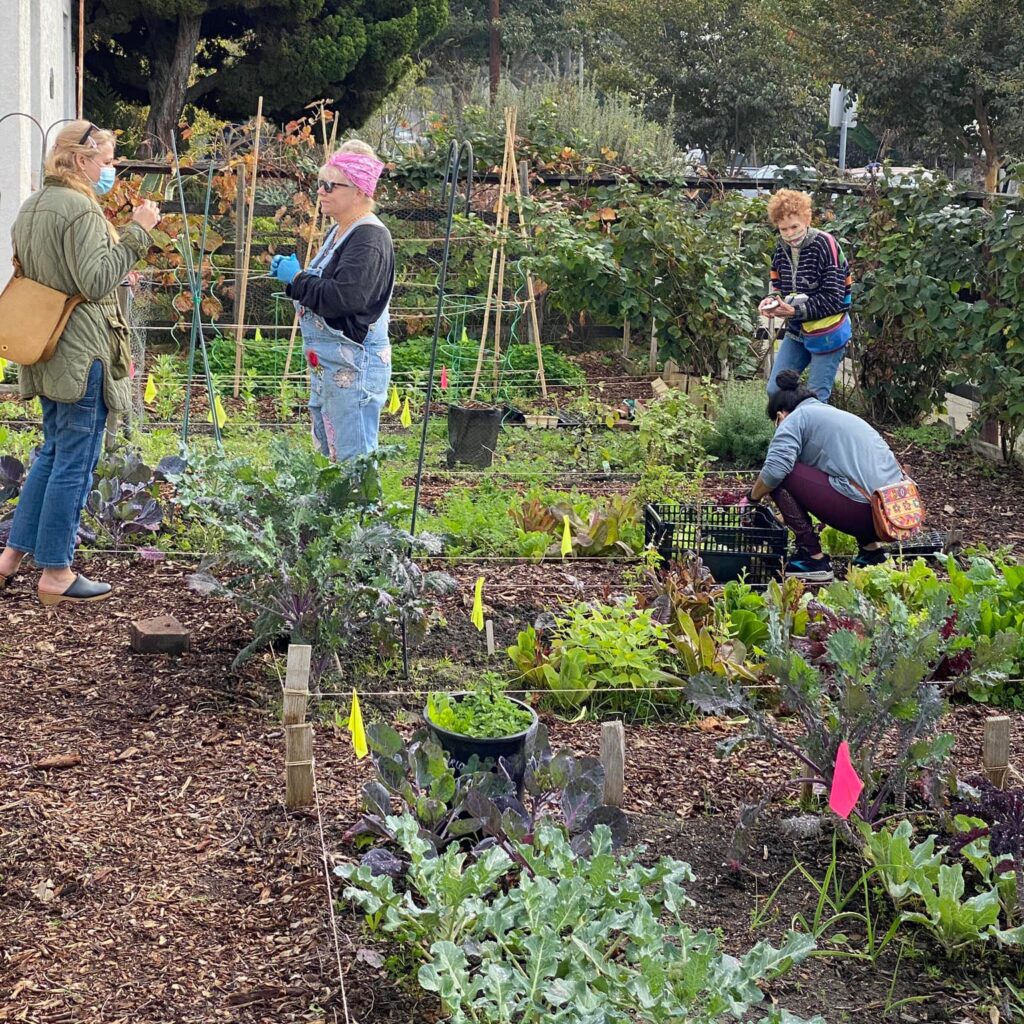
ACCESS DENIED?
The dispute started on Jan. 24. An email was sent by Ricks-Oddie’s Chief of Staff Anjelica Vargas notifying those with access to the old firehouse building that the locks would be changed because “there is an undetermined number of keys floating around and for safety and security reasons, we need to have that remedied swiftly.”
The directive was sent just over a month after Ricks-Oddie was sworn into office. In the initial email, Vargas explained that the locks would be changed within a day or two and that new keys would be distributed to the leadership of groups using the space as soon as the work was complete. But three days later, when Rowe inquired about where he could get a key so that gardeners could access the building’s washrooms over the weekend, Vargas responded that “keys are not being distributed at this time” and later wrote that any use of the building would need to be “approved by the Council District staff” while permits to use the space were being “reassessed and approved” by the city.
The emails came as a major surprise to Rowe. He says, at the time gardeners were already frustrated that the city had been slow-walking their request to renew their permit to use the property.
On Jan. 27, Rowe shot back: “Our lease expressly allows us access to the building, without yours or anyone else’s supervision. Yes, our lease has expired, despite a nearly year-long campaign for an extension.”
While Rowe referred to the agreement between the neighborhood association and the city as a “lease,” it was actually a right-to-entry permit. The document grants the neighborhood association the right “use and occupy the Premises on a non-exclusive basis, for the express purpose of conducting occasional meetings and neighborhood events” but can be terminated by any party “upon written notice for any reason or no reason.”
According to Rowe, up until the new regime was imposed by Ricks-Oddie, the council office and neighborhood association had coordinated in a much more informal way, a system that had worked for many years. Several master gardeners had keys to the property and would let in other volunteers during daylight hours. Rowe says access to the firehouse building was necessary because that’s where gardeners stored seeds and some of their tools. More importantly, gardeners needed access to the building to get to the bathrooms inside while working.
The right-to-entry permit expired in May 2019 and had not been renewed by the city, despite efforts from the neighborhood association to secure a long-term agreement. Still, Rowe claimed in an email to Vargas that the permissions granted in the permit continued to apply past the expiration date until it was explicitly terminated by the city.
Vargas responded to Rowe the following day: “What has or has not taken place previously has no bearing on what is being done now and how this administration will handle use of the facility.”
Without access to the firehouse building, Rowe said, the neighborhood association was forced to cancel their monthly crop swap event and gardening classes, which were due to take place just days after he was first notified of the changes. Rowe says that the UC master gardeners privately mocked the idea of having to run every single use by the councilmember’s office since the farm required daily care.
“We’re all volunteers and don’t respond well to imperious demands,” Rowe wrote to Vargas.
On Jan. 28, Councilmember Ricks-Oddie joined the fray, responding to Rowe: “Instead of notifying the Council office of the upcoming events and coordinating with us for access, you made the decision to cancel those events. That was a choice you made, not a result of a policy change by the Council office”
She went on to reiterate that the move was designed to “bring increased safety, structure and access to the Council District 9 Field Office for existing and future community partners.”
When asked if any previous safety issues prompted the decision, Ricks-Oddie said, “I’m not one of those people who’s going to wait for something to happen to make a decision. It’s a city facility, my staff is in there, their safety is paramount to me.”
Rowe said he felt the council office had overstepped their authority by taking control of the public property, raising concerns over political favoritism determining what groups get priority to use the space.
“I can say this is just flat out ethically and morally wrong to do this frightening abuse of political power. No one benefits, that’s the really pathetic part is that nobody gains, everybody loses,” said Rowe. “I mean, imagine City Council folks taking over libraries and parks and so on and saying, ‘Look, this is mine now, I’ll decide what groups get in.’”
He noted that over the years, the community has invested thousands of hours of volunteer labor into the farm and made about $5,000 in improvements, including the removal of asphalt to plant passionfruit vines—all of which are now lost.
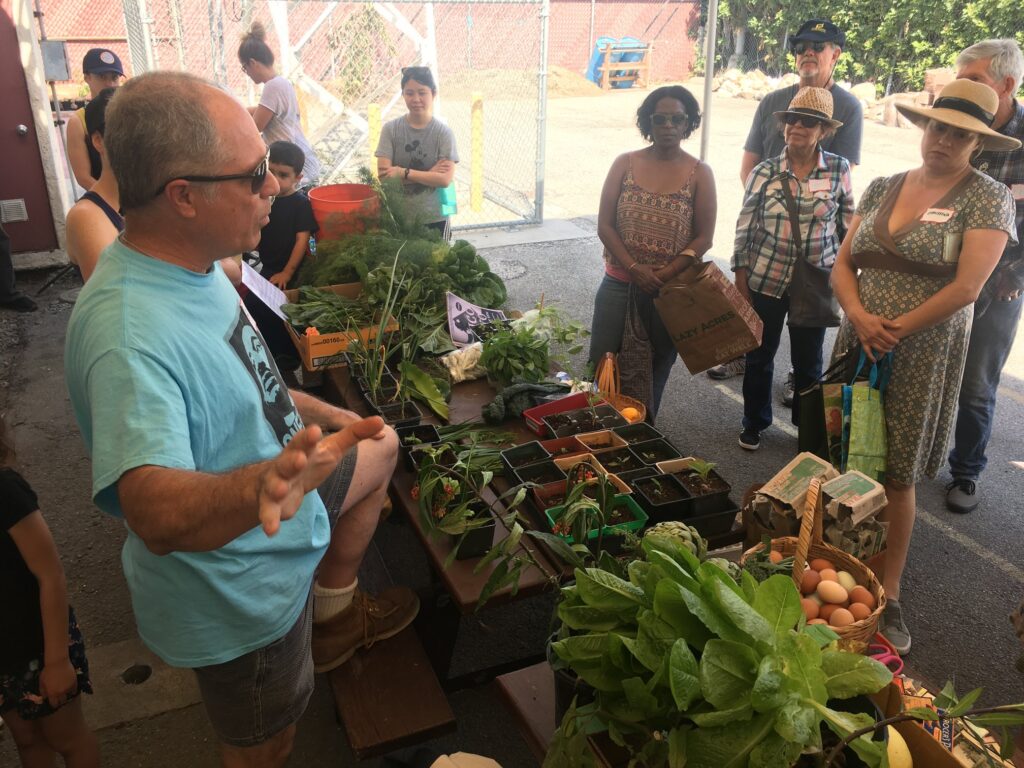
On the other side of the disagreement is the council office of Ricks-Oddie. The councilmember told us that when she assumed the position, her staff couldn’t account for all the keys that had been issued for access to the firehouse building and as a precaution decided to change the locks.
“I never wanted activities occurring there that might potentially be a safety concern, end up in some type of legal proceeding or lawsuit from the city,” she said. “I wanted to make sure that we were doing everything according to the books. And as far as I can tell maybe that was something that was not seen favorably by Jeff. And so here we are.”
With multiple community groups using the property, Ricks-Oddie had hoped oversight from her office would ensure there were no scheduling conflicts and that all the equipment was being used safely.
“Some of the folks who are nonprofits they have refrigerators in there. They have forklifts, things like that. So we wanted to make sure people were labeling things,” she said. “My goal was responsible usage of the facility because I wanted to ensure that it would continue in its longevity.”
But Rowe remained resolute on the matter. When he brought his concern of potential political favoritism with the new access policy to the City Attorney’s Office in early March, oversight of the facility was transferred from the Ninth District council office to city staffers.
“That process got taken out of our hands and is now with other city entities,” said Ricks-Oddie.
Now, the city says it’s in the process of establishing a registration process for community organizations to reserve and use the space in the future.
“Over the last several months, it became evident the City needed to address critical facility improvements as well as develop and implement a formal process before continuing use of the building as public, shared space for the local community,” city spokesperson Jennifer De Prez wrote in an email.
Asked for more information about these “critical facility improvements” the city plans to undertake, De Prez couldn’t provide any details, only saying that an assessment was underway to determine the scope of work.
“The building will remain closed for any additional public use until further notice. The building will continue to be utilized as a Council District Office,” she wrote.
Rowe doubts the community farm will ever return in its previous form. In early June he began moving the tools and equipment left behind by community gardeners.
Ricks-Oddie, whose platform included creating more green space in District Nine, expressed disappointment with the fate of the farm.
“I went to the crop swap myself. I went to events there all the time. This was not my intention. And as a community member, as a former neighborhood leader this legitimately makes me sad,” she said.
Tomisin Oluwole
Fragmented Reflection I, 2021
Acrylic on canvas panel
24 x 30 inches
Click here to check out our interview with Tomisin Oluwole, a literary and visual artist based in Long Beach.

Instead of gunking up our site with ads, we use this space to display and promote the work of local artists.
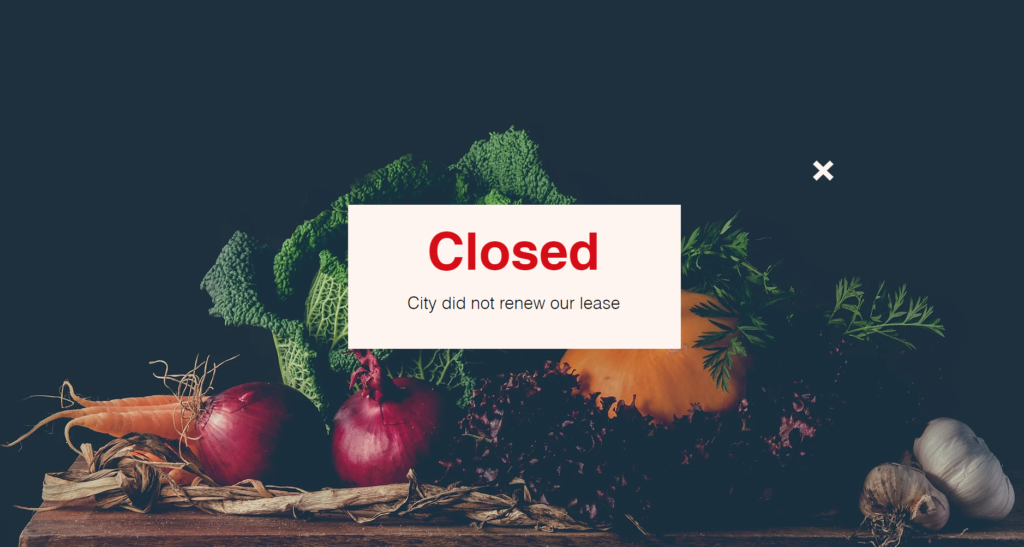
LOSS TO THE COMMUNITY
Keith Phillips, who lives across the street from the community garden, said the farm often gave away produce and he especially liked getting squash, cabbage, and papayas from the harvests.
“Why would you take something away that the community loved?” he said. “They always had kids over there and they got to participate and see how things are grown and what nature is about. I think that they really served a good purpose.”
He said he never observed any major safety issues associated with the farm: “People really respected the place.”
Research suggests that adults with a household member who participated in a community garden consumed more fruits and vegetables. Community gardens have also been shown to have a positive impact on neighborhood security and build connectedness.
Lee White, a UC master gardener and one of the former assistant managers of the community farm, said the fruits and vegetables harvested at the farm were helping to improve the availability of fresh food and produce in North Long Beach. But when access was suddenly tightened, what made the farm successful ended.
“A wonderful aspect of Firehouse Community Farm was having site access which fit volunteers availability and schedules from sun up to sun down. For that reason, the garden was a beacon for growth, community, and other garden and ecosystem activities,” she said.
Improving access to fresh produce and nutritional education in North Long Beach has been a longstanding effort by both the city and community groups. According to the 2019 Community Health Assessment, North Long Beach has some of the highest rates of obesity, hypertension, and heart disease in the city. The 90805 zip code, where the community farm operated, has the second lowest life expectancy of any zip code in the city at 72.4 years old.
Access to fresh food is linked to better health outcomes. In 2015, a survey conducted during a Beach Streets event showed that 65% respondents from North Long Beach felt it would be easier to eat more fruits and vegetables if they were more affordable and sold in their neighborhood.
Just one block to the north of the old firehouse and two blocks to the east are neighborhoods that the U.S. Department of Agriculture has deemed food deserts.
In 2012, the city established its Healthy Eating Active Living Zone initiative in North Long Beach with the help of $2 million in grants from Kaiser Permanente. Among its goals was to increase the consumption of healthy food and beverages. Four years later, the program led to the city’s first crop swap event established at the Firehouse Community Farm with the help of Long Beach Fresh, a nonprofit organization that works to improve the local food economy.
Over the years, thousands of pounds of fresh backyard fruit and vegetables have been exchanged among crop swap participants, according to Ryan Smolar, the co-director of Long Beach Fresh.
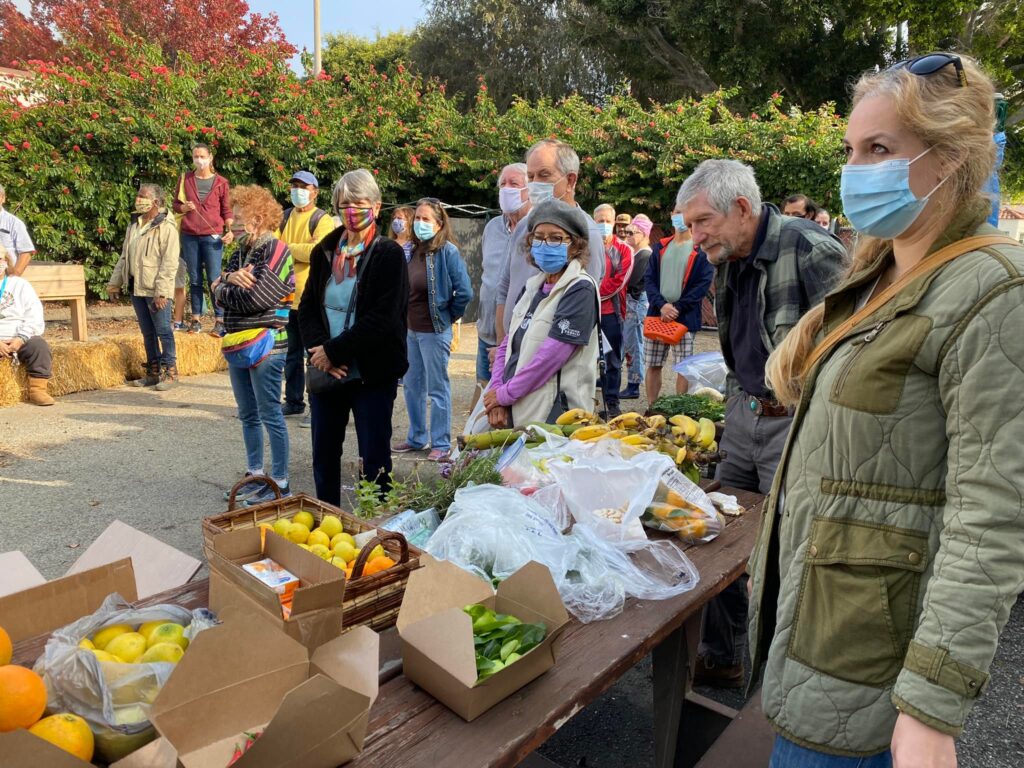
“Losing the Firehouse Farm is a tragedy,” he said. “Losing this site is bad for the community and bad for the city and we need to work together to bring it back online immediately.”
The crop swap grew to have up to 40 to 50 participants at times, said Rivera. Since the Firehouse Farm was shut down, the event has moved to the Growing Experience, an urban farm at the Carmelitos Public Housing Development.
“It was successful. It’s a shame because now that it’s gone to another location, hardly anybody goes to that location,” she said.
Richardson and Ricks-Oddie regularly promoted the crop swap event on their social media channels and in neighborhood groups. Richardson even spoke at the two-year anniversary of the event in 2018. In a video taken of his speech he thanked both Rowe and Smolar for their work revitalizing a deteriorating and overgrown public space that “not a single city department wanted to step up and claim.”
“Who cares about Trader Joes? Who needs a Trader Joes?” Richardson said in the video. “Let’s change the narrative. Let’s continue to push access to fresh food.”
Addressing food insecurity has been a staple of Richardson’s platforms, both as a councilmember and now as mayor, and he’s shepherded several initiatives to help improve the quality of food accessible to North Long Beach. In 2016, he co-sponsored legislation that would give the owners of vacant lots a tax break in exchange for allowing their land to be used for urban agriculture.
Richardson also opened up the Ninth District field office in the old firehouse to a food distribution operation that has continued with the support of Ricks-Oddie and serves 75 low-income families each week. The food hub is managed by the Long Beach Center for Economic Inclusion, a community development corporation formed at the beginning of the pandemic in 2020. Richardson has steered hundreds of thousands of dollars into the organization, which has a board composed of the mayor’s political allies.
“This year alone, LBCEI has used the office to store and distribute over 13,000 pounds of shelf-stable food, 80,000 pounds of fresh produce, and 12,000 pounds of frozen meat,” said Emily Kazim, the organization’s executive director.
And up until recently, the Firehouse Community Farm—built up by a more independent, non-partisan coalition of volunteers—had also been an important spoke of the new food ecosystem of North Long Beach. It had become a hub for nutrition and gardening education through a collaboration between volunteers, local businesses, community groups, and larger institutions.
For example, the University of California’s Master Gardener Program used the farm to teach community members how to grow fruits and vegetables in their own backyards.
“We wanted to be able to germinate 1,000 backyard farms because we’ve got a great climate here. And one grad at a time, I think we could make our country healthier,” said Rowe.
Rivera wonders why Richardson didn’t do more to help save the community farm he had become so fond of as councilmember.
“You’re gonna stand side-by-side with us, seeing how we developed the Firehouse, seeing the meetings, how the community got involved. And now that it’s closed, it’s like, what the heck?” she said.
Reached by phone, Richardson declined to publicly comment on the closing of the farm. Ricks-Oddie, a UC Irvine statistician and epidemiologist, was endorsed by Richardson during her bid for the Ninth District council seat.
Stephanie Prien, one of the master gardeners who taught classes at the site, expressed disbelief and disappointment with how the community farm was handled by city leaders.
“When all of the recent trouble started, I was shocked at how quickly things turned,” she said. “What I have learned from all of this is that the politicians in the city speak about green initiatives and healthy communities when it suits their needs. They move from one high profile project to another.”
She recounted a campaign stop at the community farm by Ricks-Oddie just before the 2022 election.
“I was weeding and her little boy came to see what I was doing,” said Prien. “He and I dug in the dirt for worms. A great teaching moment. She ‘appeared’ to be supportive of all the work we were doing and the events going on at the site. Before being elected mayor, Rex Richardson also seemed to be a supporter of the events happening there.”
URBAN FARMS AND GARDENS THREATENED BY LAND INSECURITY
The demise of the Firehouse Community Farm is part of a bigger story about the lack of ownership and control communities have over the land they transform from empty, underutilized lots into bountiful communal spaces through a major investment of volunteer labor.
“Community gardens have historically been viewed as temporary spaces to fulfill short term government goals, leaving gardens vulnerable to be allocated for other uses,” one CSU researcher has noted.
In 2006, LA Country Sheriff’s deputies evicted gardeners from the South Central Community Garden after the land was sold to a developer by the City of Los Angeles. At 14 acres it was one of the biggest community gardens in the country.
In 2016, the Wrigley Village Garden was displaced after Long Beach Organic’s lease ended and the real estate investor who owned the lot sold it. The space now serves as outdoor seating for a neighboring bar. The garden, which had been at its Pacific Avenue spot for seven years, was relocated about ten blocks south to a vacant plot owned by a businessman who told the organization he “[did] not have plans to develop the property for many years.” But that did not turn out to be true and the garden only lasted one season. The following year the property was sold to a developer that built a single-family home at the location. Despite the loss, Long Beach Organic still maintains eight other community gardens across the city.
More recently, the Compton Community Garden—which serves parts of North Long Beach—was in danger of being displaced when the land owner put the property up for sale. Residents rose up and organized to save the cherished community space that had been feeding families for a decade. When the news went viral, a GoFundMe page set up to preserve the garden raised nearly half a million dollars—enough to purchase the land and save the garden.
“Community gardens exist on properties that do not belong to them and could be removed on a whim,” said Prien. “Planned communities with dedicated land that can not be revoked is where we need to start.”
Additional reporting by Shay Sharan.
7/6/23: The story has been updated to include additional details from the email exchange between Vargas and Rowe.

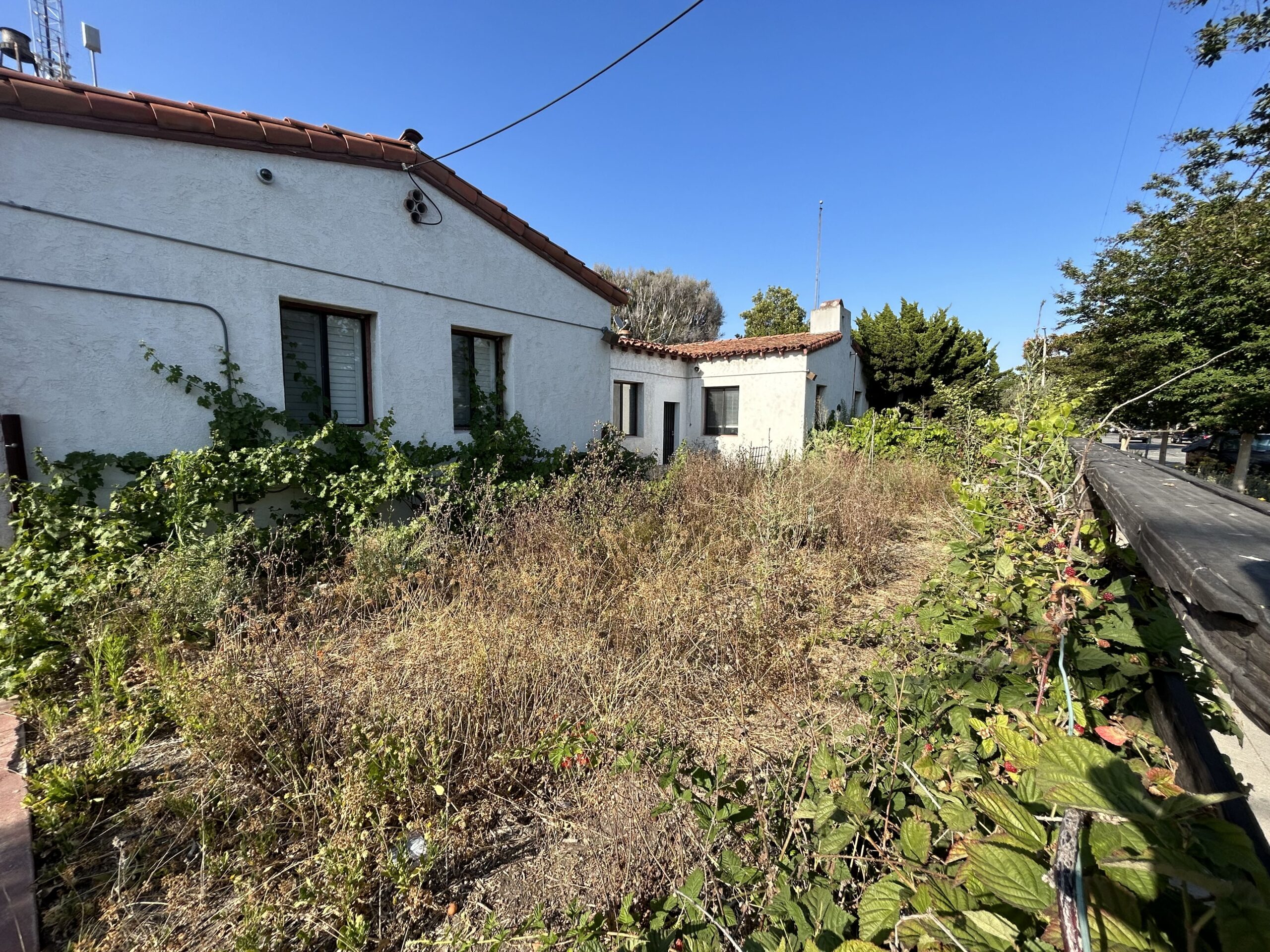
 kevin@forthe.org
kevin@forthe.org @reporterkflores
@reporterkflores




